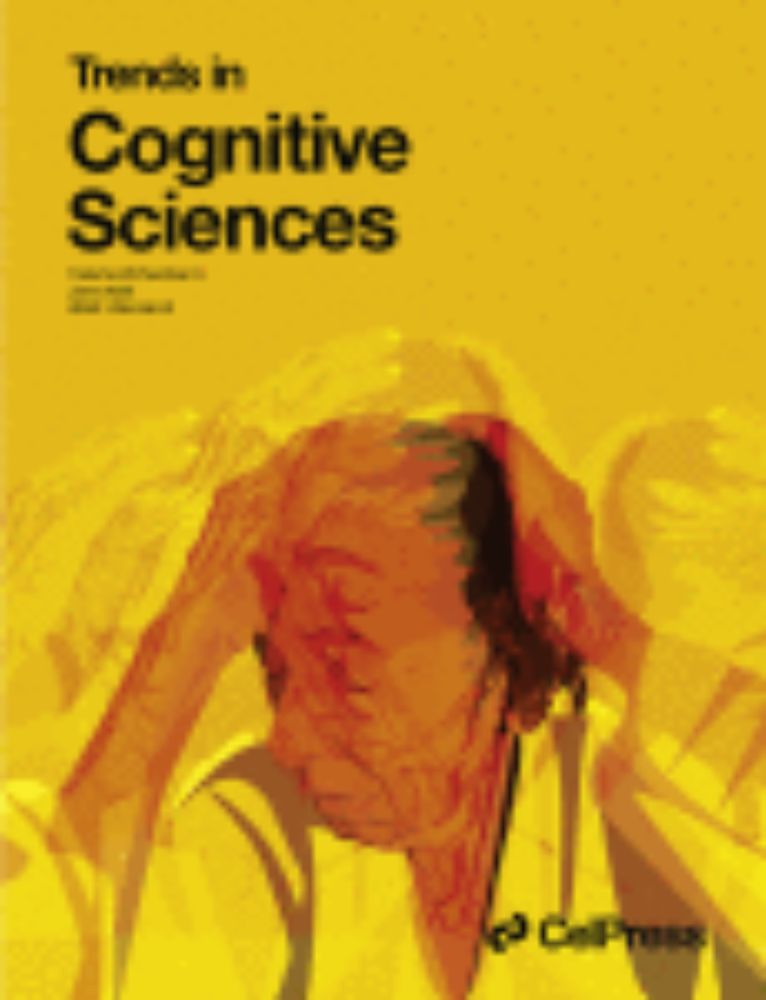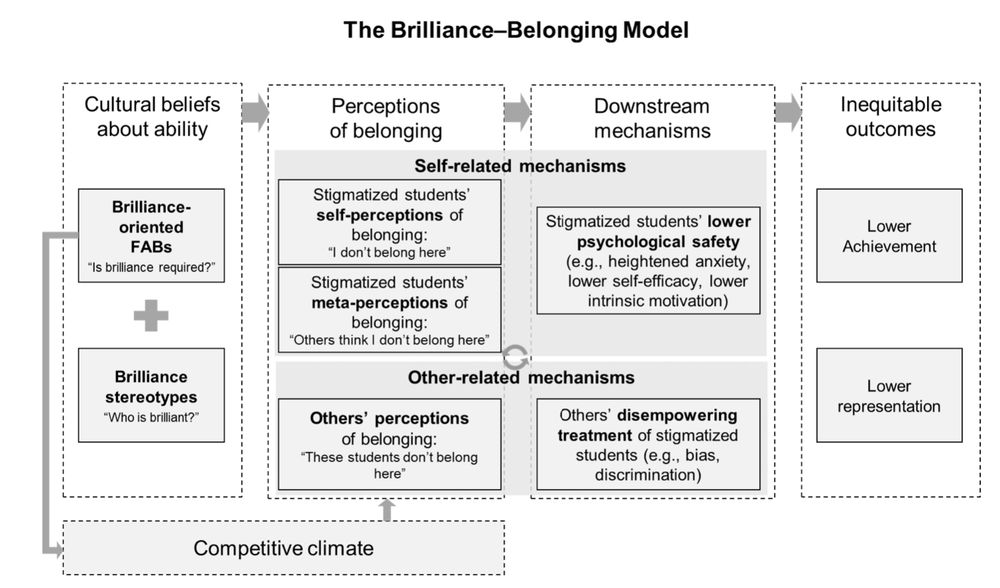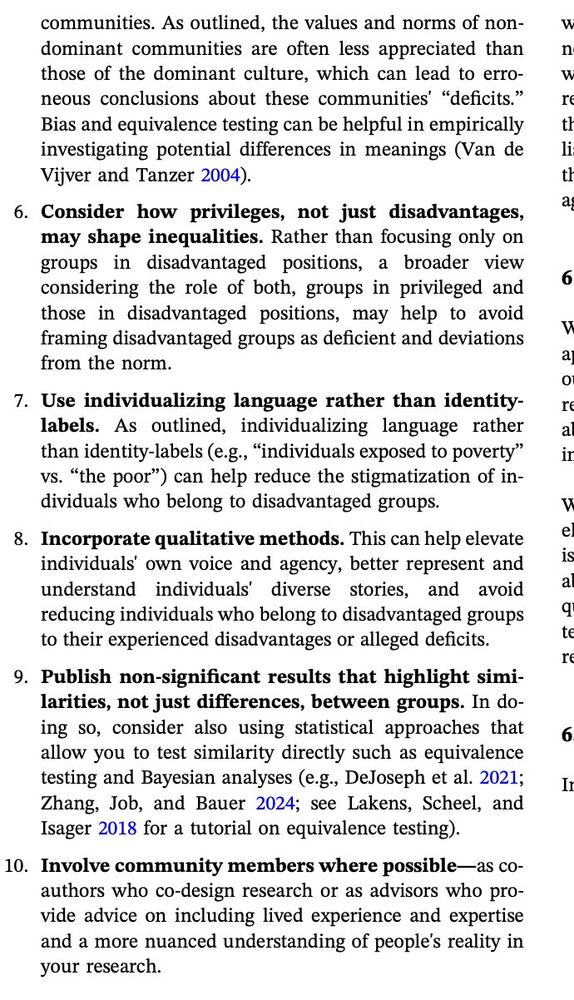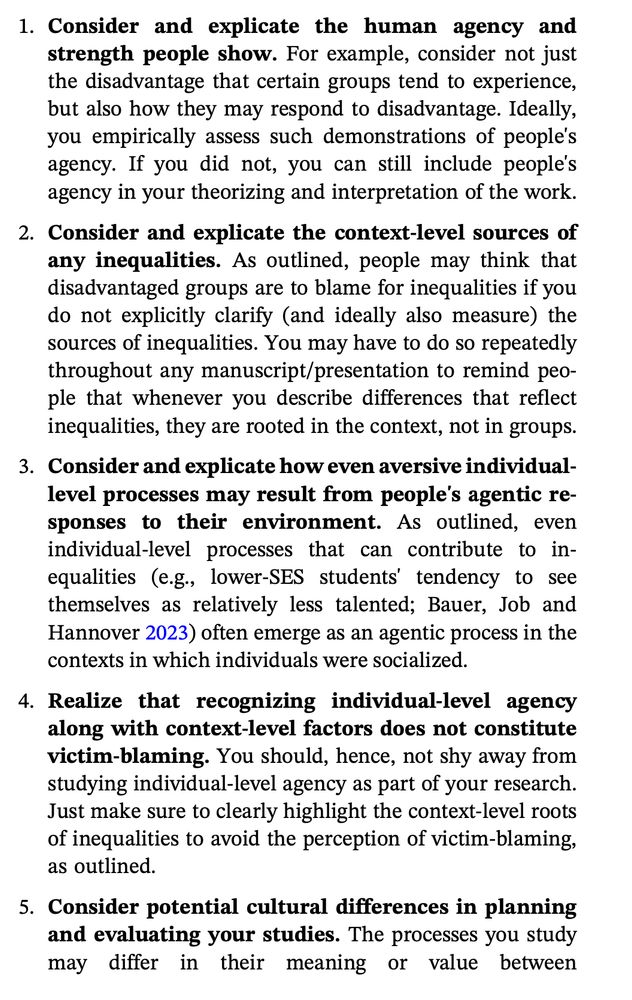Sage Journals: Discover world-class research
Subscription and open access journals from Sage, the world's leading independent academic publisher.
happy to see our years-long work on "the strength in mental illness" out at PSPB 🥳
We show that acknowledging the strength people often show in contending with depression boosts successful goal pursuit.
doi.org/10.1177/0146...
03.02.2026 08:47 — 👍 2 🔁 0 💬 0 📌 0

In my way to the German social psych conference& getting to try the new night trains 👀 #futureofconferencing
13.09.2025 17:51 — 👍 3 🔁 0 💬 1 📌 0
In doing so, we hope our review can inform the different lines of research investigating beliefs about difficulties from different angles, and help us better understand difficulty beliefs as a larger phenomenon.
26.06.2025 12:13 — 👍 0 🔁 0 💬 0 📌 0
We propose a unifying mechanistic model and show how an integrative perspective can clarify how difficulty beliefs shape motivation, coping, and long-term outcomes across contexts.
26.06.2025 12:13 — 👍 0 🔁 0 💬 1 📌 0
We show that across these various types of difficulties investigated, a similar pattern emerges: People commonly focus on the negative effects of difficulties, and embracing a more nuanced view of difficulties can support important life outcomes.
26.06.2025 12:13 — 👍 0 🔁 0 💬 1 📌 0
While willpower-theory research focuses on a task-level difficulties (e.g., a math task), stress mindset theory focuses on a life-situation level (e.g., stress at work), and identity-reframing on identity-level challenges (e.g., difficulties connected to lower SES backgrounds)
26.06.2025 12:13 — 👍 0 🔁 0 💬 1 📌 0
Prior work has examined beliefs about the effects of difficulties in so far disconnected lines of research, focusing on different types of difficulties, and partly using different terminologies, methods and outcome-foci.
26.06.2025 12:13 — 👍 0 🔁 0 💬 1 📌 0

How rethinking difficulties can shape important life outcomes
Difficulties are a common part of life, ranging from daily challenges to chronic adversity. While difficulties can undermine well-being, they can also…
news 🚨 In TICS, we review the way people see various forms of difficulties. Across types of difficulties studied in so far disconnected lines of research, we find: re-thinking difficulties as not only implying harm can support important life outcomes.
www.sciencedirect.com/science/arti...
26.06.2025 12:13 — 👍 5 🔁 0 💬 1 📌 0
It was great fun writing this article and creating this model together with @andreicimpian.bsky.social, @aashnap.bsky.social, and Eddie Brummelman - really happy and grateful we did this! :)
26.05.2025 14:11 — 👍 1 🔁 0 💬 0 📌 0
Overall, we hope this paper helps us better understand how and when brilliance-beliefs contribute to inequalities. I also hope it provides a useful ground for intervention work in this space, which I think is much needed.
26.05.2025 14:11 — 👍 0 🔁 0 💬 1 📌 0
The other-related path describes how important others in a given environment (e.g., teachers) can doubt students' belonging based on brilliance-beliefs, triggering disempowering treatments of students, which can cause further harm, undermining educational equality, too.
26.05.2025 14:11 — 👍 1 🔁 0 💬 1 📌 0
The self-related path concerns mechanisms that lie within the student; students may doubt their own belonging and they mal also anxiously wonder, whether others see them as belonging in a given environment; both can trigger anxiety and other mechanisms that can cause harm.
26.05.2025 14:11 — 👍 0 🔁 0 💬 1 📌 0
Regarding processes, BBM distinguishes between two broad paths: the self- and other-related path.
26.05.2025 14:11 — 👍 0 🔁 0 💬 1 📌 0
This interplay explains, why educational inequalities tend to be more pronounced in some fields (e.g., philosophy or physics - fields with stronger brilliance-beliefs) than others (e.g., education, or biology).
26.05.2025 14:11 — 👍 0 🔁 0 💬 1 📌 0
If this is the case, this student is generally seen as belgonging less in the respective environment which then triggers down-stream mechanisms that ultimately drive inequalities.
26.05.2025 14:11 — 👍 0 🔁 0 💬 1 📌 0
i) the student is in a brilliance-oriented environment (i.e., brilliance is thought to be important) and ii) the student is stereotyped as relatively less brilliant based on their social identity (being a woman, ethnic minority, or having a lower SES).
26.05.2025 14:11 — 👍 0 🔁 0 💬 1 📌 0
BBM suggests that brilliance-beliefs work in concert with stereotypes; specifically, a student's outcomes are likely undermined, if 2 things coincide:
26.05.2025 14:11 — 👍 0 🔁 0 💬 1 📌 0

🚨Excited our review on the way brilliance-beliefs undermine educational equality just got accepted at Ed Psych Review 😍 In the paper, we introduce the Brilliance-Belonging Model (BBM), which helps us understand when and how brilliance-beliefs work... 🧵
tinyurl.com/5c4aez9w
26.05.2025 14:11 — 👍 9 🔁 2 💬 1 📌 2
We hope this work is helpful in making progress toward a study of inequality that is as accurate and non-stigmatizing as possible. Thanks to my collaborators and the CERA network that made this all possible!
17.02.2025 13:03 — 👍 1 🔁 0 💬 0 📌 0
 17.02.2025 13:03 — 👍 0 🔁 0 💬 1 📌 0
17.02.2025 13:03 — 👍 0 🔁 0 💬 1 📌 0

In addition to outlining this approach, we distill it to 10 concrete research practices which we think are key . see here:
17.02.2025 13:03 — 👍 0 🔁 0 💬 1 📌 0
At the core of this holistic approach is a simultaneous recognition of context‐level disadvantage (a focus of traditional inequality research) and individual‐level agency (a focus of strength‐based research) in studying inequlity.
17.02.2025 13:03 — 👍 0 🔁 0 💬 1 📌 0
In the present work, we hence set out to understand how we can conduct social inequality research that doesnt stigmatize, incorporating recent advances of strength-based research and traditional inequality research into what we call a "holistic" approach to studying inequality.
17.02.2025 13:03 — 👍 0 🔁 0 💬 1 📌 0
To counter such deficit-narratives, recent advances in strength-based research have tried to better understand and highlight the agency and strength people in disadvantaged positions often show. Yet, this research isn't sufficient to really understand how inequality works.
17.02.2025 13:03 — 👍 0 🔁 0 💬 1 📌 0
here is the gist: In understanding the psychology of social inequalities, inequality research sometimes portrays people as weak (e.g., reducing them to the role of weak victims) or otherwise deficient, lacking in agency, motivation, and skills- all portrayals that can stigmatize.
17.02.2025 13:03 — 👍 0 🔁 0 💬 1 📌 0
news! 🚨👀Social inequality research can sometimes inadvertently stigmatise disadvantaged groups as weak, lacking in agency, motivation, or skills. In our new review, we highlight how we can come to a more accurate and non-stigmatizing study of inequality.
tinyurl.com/3rcjt9e7 🧵...
17.02.2025 13:03 — 👍 2 🔁 1 💬 1 📌 0
Whew.
If you work in, or draw on the work of, the behavioral sciences, add this to your reading list.
19.11.2024 23:19 — 👍 233 🔁 62 💬 17 📌 3
Not sure if I did this right or not, but here are scholars who study motivation in educational settings, mostly affiliated with @aera-motsig.bsky.social and @aeraedresearch.bsky.social
go.bsky.app/3PuVgdT
16.11.2024 12:45 — 👍 88 🔁 44 💬 17 📌 0
Immer auf dem aktuellsten Stand der Forschung sein? 👩🔬 👨🔬Hier findest du alle Wissenschafter:innen der Universität Wien die auf Bluesky aktiv sind! 👀 ⤵
go.bsky.app/UyRt4h3
11.11.2024 11:24 — 👍 130 🔁 63 💬 21 📌 2
We argue that such discourse can be stigmatising and exacerbate inequalities. With the intervention, we'd like to counter that stigma and highlight the importance of recognizing that people in disadvantage positions often show strengths and are not weak.
28.10.2024 09:36 — 👍 1 🔁 0 💬 0 📌 0
Ph.D. student @kinderstudien.bsky.social
musical interactions in infancy ♫👶🧠🫀
she/her
Social psychologist @ LMU Munich. Interested in personality, self-concept change & social justice
PhD student at Saarland University | Social psychology
https://www.uni-saarland.de/fr/lehrstuhl/sozialpsychologie/personen/msc-charmaine-utzig.html
PhD Student at Saarland University | Self-Control & Self-regulation | Founder: @psychrstats.bsky.social | Ex officio grad rep. SIPS EC @improvingpsych.org | She/Her|
https://sites.google.com/view/poojakulkarni/about
Social psychologist interested in self-regulation, close relationships, environmental psychology, meta science
Socialization of Motivation in Education (some) Research Lab at the University of Tennessee, Knoxville 🧡🐾
Directed by Dr. Xiao-Yin Chen 🤓
We are more than just some lab! ✨
Social/Legal Psychologist @ LMU Munich
I study why students do what they do.
Research Associate & PhD Candidate at Leuphana University Lüneburg, Germany 🌱 | University of Groningen Alumni 🎓 | Interested in imitation, migration, empowering women in the Global South & belonging 🤝🌎❤️
https://www.automatic-imitation.com/
PhD | Researcher | Psychologist at the Max Planck Institute of Psychiatry (@mpi-psychiatry.bsky.social) | Interested in self-control, motivation, mental fatigue, cognitive performance, and psychological assessment. Opinions are my own.
PhD candidate at HebrewU & LeidenU | Head of political research at aChord: social psychology for social change | Political legitimacy, intergroup psych interventions, Israel-Palestine
Professor of Political Science at Manchester University. British politics, race and ethnicity, representation.
Professor of Communication, Free University of Berlin
Digital Media Effects, Media Psychology, Political Communication
Psychology of Communication, Media Psychology, Professor at the University of Würzburg, Germany. Father and former table tennis player.
Lage der Nation - der wöchentliche Politik-Podcast mit Philip Banse & Ulf Buermeyer @Buermeyer.de
Jetzt Lage-Mitglied werden und unabhängigen Journalismus unterstützen: https://lagedernation.org/plus
PhD researcher @University of Jena I Political & Social Psychology | research on nostalgic deprivation & radical right support
reading and writing about scientific methods, political psychology, digital media, democratic functioning and #VfB.
Social psychologist, junior researcher & PhD student • University of Munich • #victimblaming, gender/sexual #stereotypes, #ideologies #attitudes & more • he/him



 17.02.2025 13:03 — 👍 0 🔁 0 💬 1 📌 0
17.02.2025 13:03 — 👍 0 🔁 0 💬 1 📌 0
